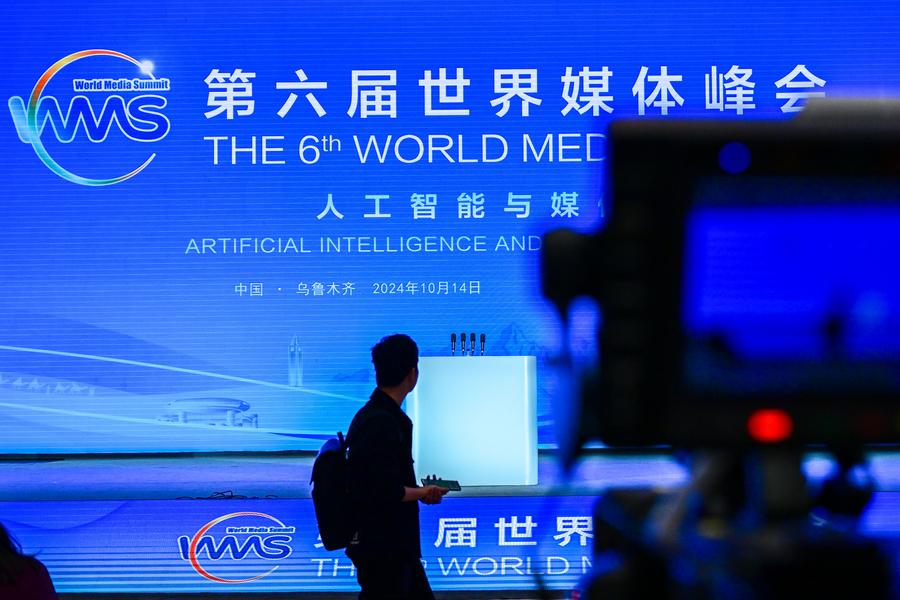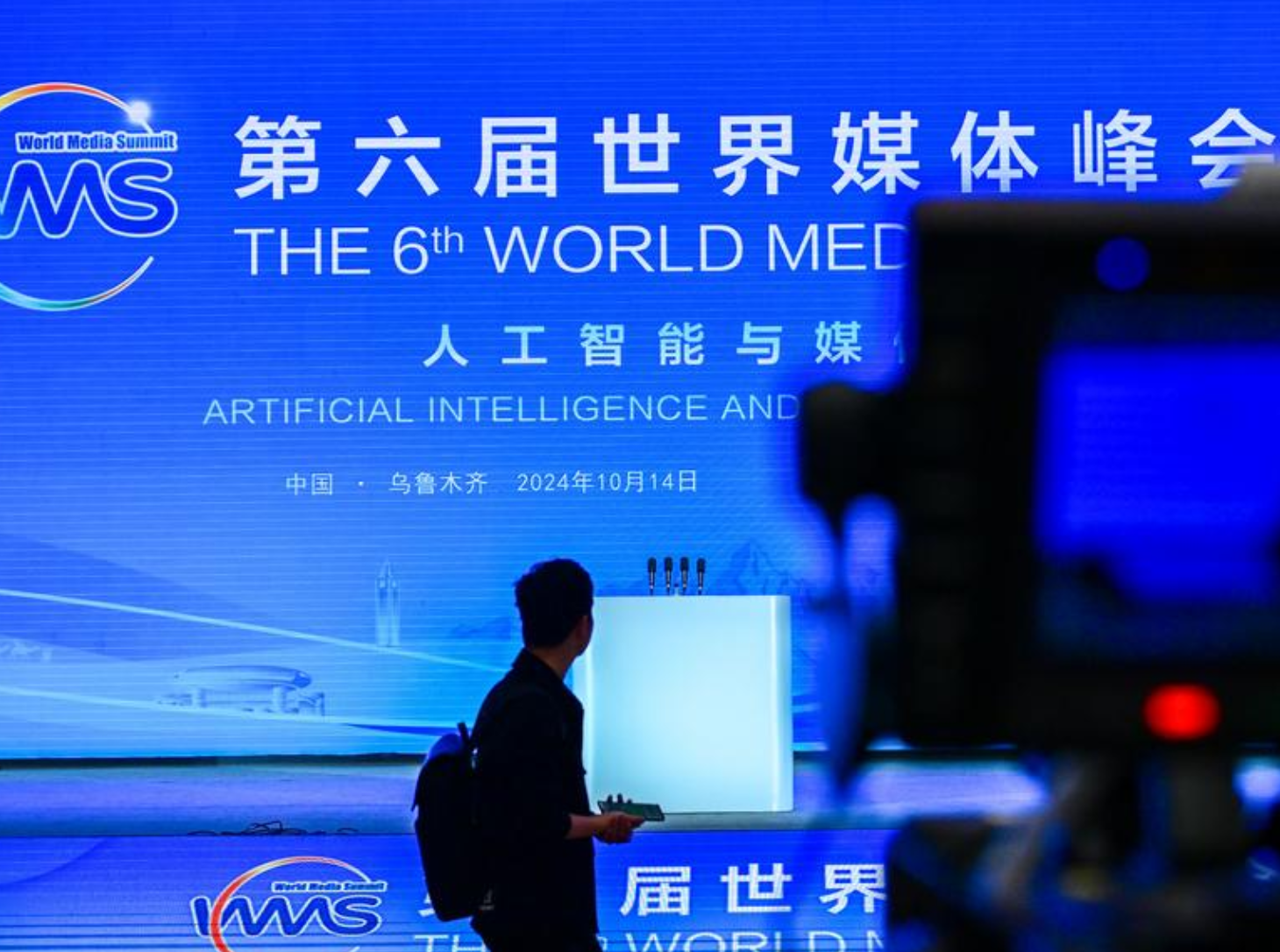
This photo shows a view of the main venue of the sixth World Media Summit at the Xinjiang International Convention and Exhibition Center in Urumqi, northwest China's Xinjiang Uygur Autonomous Region, Oct. 13, 2024. (Xinhua/Ding Lei)
URUMQI, Oct. 14 (Xinhua) -- A report released on Monday by a think tank affiliated with Xinhua, China's national news agency, provides insights into the opportunities and challenges faced by news media outlets worldwide in the era of artificial intelligence (AI).
Just like the previous revolutions in communication technology, the development of AI cannot escape from the "Collingridge dilemma," says the report, titled "Responsibility and Mission of News Media in AI Era," highlighting the quandary between the need for development and the imperative of governance in order to harness AI for the betterment of humanity.
According to the report, released during the ongoing 6th World Media Summit in Urumqi, capital city of northwest China's Xinjiang Uygur Autonomous Region, the majority, 66 percent, of the news media surveyed worldwide view the impact of generative AI on the industry positively. Additionally, 51.2 percent of the respondents had already started implementing AI technologies.
Media organizations primarily expected generative AI to enhance the timeliness and productivity of news reporting. However, they also expressed apprehensions about the potential credibility risks associated with AI, particularly regarding the "distortion and inaccuracy of news clues and materials." A substantial 76.4 percent of respondents shared these concerns.
Additionally, a significant majority, 85.6 percent, of the surveyed news media believed that the application of generative AI required better regulation.
These findings were based on a questionnaire survey conducted in 2024. The survey covered over 1,000 respondents from 53 countries and regions, representing a diverse range of media outlets such as newspapers, periodicals, broadcasting and television stations, news agencies, websites, and mobile application service providers.
"AI is driving a new wave of productivity in news media, creating advanced productive forces across content collection, production, distribution, and evaluation," the report points out.
It empowers both media organizations and consumers with enhanced experiences that transcend time and space, integrating virtual and real-world interactions, and facilitating human-machine communication.
Additionally, AI is fostering new business models, including a media-centric approach for everything, platform-based media, and a digitalized and intelligent industry.
The report, however, warns against multiple risks and challenges brought about by the uncertainty of AI and its misuse.
False information has escalated in scale, form and distribution, triggering a global crisis of authenticity, it says, noting that the technology's limitations and the users' private interests have created a "collusion" effect, polluting public opinion and negatively affecting individual perceptions and societal discourse.
Meanwhile, widespread value disputes and ethical dilemmas have put AI in a dilemma between development and governance.
The "intelligence divide" may further widen the gap between people, urban and rural areas, and between the North and the South, promoting technological hegemony and exacerbating global development imbalances, it adds.
The report proposes that news media should shoulder their social responsibilities, commit to a "people-first" approach and promote "intelligence for good" in the era of AI.
To achieve this goal, news media could accelerate intelligent-driven initiatives to enhance media value, prioritize ethical use of AI to establish robust standards, shoulder social responsibilities to optimize the cognitive environment, and foster dialogue and cooperation to improve global governance.
"In this way, powerful media forces will unite to build a community with a shared future and contribute to a better world," the report says.




 A single purchase
A single purchase









